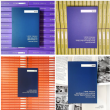A cinematic evening at the Veronetta Contemporanea Festival exploring the poetics and politics of resistance, existence, and relationality through the films of Anna Marziano, the 2024 HaFI residency recipient. In collaboration with HaFI.
June 3rd, 2025 — Projects / Event HaFI 023 is the result of a first effort to enhance the visibility of Teri Wehn Damisch’s film and television work, organized in 2022 at the Galerie Colbert (Paris) and the Centre Pompidou through a retrospective, an academic workshop and an exhibition. The booklet contains four texts by Teri Wehn Damisch, attending to the conception […]
HaFI 023 is the result of a first effort to enhance the visibility of Teri Wehn Damisch’s film and television work, organized in 2022 at the Galerie Colbert (Paris) and the Centre Pompidou through a retrospective, an academic workshop and an exhibition. The booklet contains four texts by Teri Wehn Damisch, attending to the conception […]
 The timeline shows a collection of legal and visual events that some of the participants have selected in relation to their projects. It draws the connection between the law and images by way of artistic projects.
The timeline shows a collection of legal and visual events that some of the participants have selected in relation to their projects. It draws the connection between the law and images by way of artistic projects.
As part of the publication "HaFI 023: Teri Wehn Damisch: Transatlantic Crossings Between the Arts," ed. Christa Blümlinger (release date: mid-May 2025).
April 30th, 2025 — Rosa Mercedes / 07 BY TERI WEHN DAMISCH. "Given that Luciano Fabro, despite having consented to the idea of a film being made about his work, had no desire to be interviewed, I was forced to find another way to get him to talk despite himself." (T.W.D)
BY TERI WEHN DAMISCH. "Given that Luciano Fabro, despite having consented to the idea of a film being made about his work, had no desire to be interviewed, I was forced to find another way to get him to talk despite himself." (T.W.D)
 As part of our publication "HaFI 023: Teri Wehn Damisch: Transatlantic Crossings Between the Arts", edited by Christa Blümlinger (release date: mid-May 2025).
As part of our publication "HaFI 023: Teri Wehn Damisch: Transatlantic Crossings Between the Arts", edited by Christa Blümlinger (release date: mid-May 2025).
 A short documentary that investigates a case of censorship and violence that took place in Italy in 1981, targeting the film A.A.A. Offresi.
By COLLETTIVA (Marta Basso, Sara Cecconi, Carlotta Cosmai, and Alice Malingri).
A short documentary that investigates a case of censorship and violence that took place in Italy in 1981, targeting the film A.A.A. Offresi.
By COLLETTIVA (Marta Basso, Sara Cecconi, Carlotta Cosmai, and Alice Malingri).
An essay on the two television documentaries, "Processo per stupro" (1979) and "A.A.A. Offresi" (1981), which, [...] suffered a broadcasting ban that made them invisible, concealed objects. By ANNAMARIA LICCIARDELLO.
March 24th, 2025 — Rosa Mercedes / 08 The increasing entanglement of art and artists with the law is occurring during a time when the status of the legal has never been more precarious, given the far right’s aim to nullify, hollow out, or simply abolish the judicial apparatus altogether as part of its ongoing evisceration of the postwar liberal democratic order.
The increasing entanglement of art and artists with the law is occurring during a time when the status of the legal has never been more precarious, given the far right’s aim to nullify, hollow out, or simply abolish the judicial apparatus altogether as part of its ongoing evisceration of the postwar liberal democratic order.
 This issue is dedicated to the work of filmmaker and artist Ingo Kratisch, who was also responsible for the camerawork in Harun Farocki's films for over three decades.
This issue is dedicated to the work of filmmaker and artist Ingo Kratisch, who was also responsible for the camerawork in Harun Farocki's films for over three decades.
 The times and spaces of colonialisms and neocolonialism are connected in ways that demand forms and languages of analysis that cannot and must not be reduced to those of science and administration.
The times and spaces of colonialisms and neocolonialism are connected in ways that demand forms and languages of analysis that cannot and must not be reduced to those of science and administration.
 "Le malentendu colonial" raises the question how a complaint is made, how an accusation is performed; how the memory of German colonialism is repressed and how it is finding its administrative continuation in today’s institutions.
"Le malentendu colonial" raises the question how a complaint is made, how an accusation is performed; how the memory of German colonialism is repressed and how it is finding its administrative continuation in today’s institutions.
An essay written by Daniel Eisenberg in 1992. Republished in an abridged version in "HaFI 022: About Ingo Kratisch. A Logic of Images. A Logic of Things" (eds. Daniel Eisenberg, Clio Nicastro, Ellen Rothenberg) now available.
January 31st, 2025 — Rosa Mercedes / 07HaFI 022: About Ingo Kratisch. A Logic of Images. A Logic of Things (eds. Daniel Eisenberg, Clio Nicastro, Ellen Rothenberg) available now!
January 27th, 2025 — Rosa Mercedes / 07Application deadline: March 15, 2025.
January 23rd, 2025 — 2025 A discussion which touched on questions of montage and the possibility of image criticism.
A discussion which touched on questions of montage and the possibility of image criticism.
 A workshop on the role of work for artificial intelligence as well as its legal implications for working conditions and copyright.
A workshop on the role of work for artificial intelligence as well as its legal implications for working conditions and copyright.
 "We need to believe that what we want to say has happened, because it remains true that only what really exists in us - our style and our time as objects of our knowledge - is worth the effort of being written." (Ingemo Engström in "About Narration")
"We need to believe that what we want to say has happened, because it remains true that only what really exists in us - our style and our time as objects of our knowledge - is worth the effort of being written." (Ingemo Engström in "About Narration")
 In exchange with the transversal seminar „Rehearsing the (extra-)jurisdiction of images“ at HEAD Genève / HES-SO.
In exchange with the transversal seminar „Rehearsing the (extra-)jurisdiction of images“ at HEAD Genève / HES-SO.
 Marziano's new film project connects to our research project “Terms and Conditions. The Legal Form of Images” [...].
Marziano's new film project connects to our research project “Terms and Conditions. The Legal Form of Images” [...].
 HaFI resident Anna Marziano talks about her film practice and her current film project "Schiuma di mondi."
HaFI resident Anna Marziano talks about her film practice and her current film project "Schiuma di mondi."
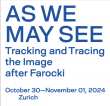 As part of the conference “As We May See: Tracking and Tracing the Image after Farocki” (30.10. – 1.11.2024).
As part of the conference “As We May See: Tracking and Tracing the Image after Farocki” (30.10. – 1.11.2024).
 The three thematic areas—code of conduct, ownership, crimes and ecology—productively resonate with each other, generating key concepts. By CLIO NICASTRO
The three thematic areas—code of conduct, ownership, crimes and ecology—productively resonate with each other, generating key concepts. By CLIO NICASTRO
A cooperation with HaFI.
October 11th, 2024 — Projects / Event A two-part film program as part of our research project “Terms and Conditions: The Legal Form of Images”.
The second part is dedicated to the continuity of coloniality and (neo)colonial legal processes.
A two-part film program as part of our research project “Terms and Conditions: The Legal Form of Images”.
The second part is dedicated to the continuity of coloniality and (neo)colonial legal processes.
 A two-part program as part of our research project “Terms and Conditions: The Legal Form of Images”.
The first part is dedicated to feminist film practices and the legal framework of moving images.
A two-part program as part of our research project “Terms and Conditions: The Legal Form of Images”.
The first part is dedicated to feminist film practices and the legal framework of moving images.
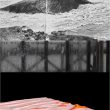 The filmmaker Anna Marziano is a guest of the Harun Farocki Residency, realized in the framework of the research project "Terms and Conditions". A continuation of the collaboration with the Kultur Ensemble Palermo.
The filmmaker Anna Marziano is a guest of the Harun Farocki Residency, realized in the framework of the research project "Terms and Conditions". A continuation of the collaboration with the Kultur Ensemble Palermo.
 "A theory of juridical practice is to be developed; and even more fundamentally: the entire philosophy contained in law, which law cannot think, but by which it is dominated, is to be grasped juridically." (Farocki and Zischler on BERNARD EDELMAN)
"A theory of juridical practice is to be developed; and even more fundamentally: the entire philosophy contained in law, which law cannot think, but by which it is dominated, is to be grasped juridically." (Farocki and Zischler on BERNARD EDELMAN)
Beyond the polarization between readings that equate it with depoliticization and those that identify it as a new form of political struggle, the fundamental characteristic of juridification remains its nature as a political phenomenon. By NATASCIA TOSEL
August 27th, 2024 — Rosa Mercedes / 08In what ways can we perform a critique of law during the “new twenties” of the twenty-first century? Can we escape reproducing the critique of the form of law in the same form that the law? By DARIA BAYER
August 20th, 2024 — Rosa Mercedes / 08 "Whatever his media, he rigorously and unrelentingly interrogated the translation of thought into language, never losing sight of the fact that media function according to the repetition of specific codes in the form of words, phrases, gestures, body techniques, pictures, images, and shot sequences." An excerpt from "Harun Farocki: Forms of Intelligence" by NORA M. ALTER
"Whatever his media, he rigorously and unrelentingly interrogated the translation of thought into language, never losing sight of the fact that media function according to the repetition of specific codes in the form of words, phrases, gestures, body techniques, pictures, images, and shot sequences." An excerpt from "Harun Farocki: Forms of Intelligence" by NORA M. ALTER
![]() How can cinematic practices allow us to see and hear wounds of environmental and social injustice in spaces around us? With Susan Schuppli, Nora M. Alter, and Doreen Mende.
How can cinematic practices allow us to see and hear wounds of environmental and social injustice in spaces around us? With Susan Schuppli, Nora M. Alter, and Doreen Mende.
 The booklet, edited by Daniel Eisenberg, Clio Nicastro, and Ellen Rothenberg, will be dedicated to the work of the filmmaker and artist Ingo Kratisch, ...
The booklet, edited by Daniel Eisenberg, Clio Nicastro, and Ellen Rothenberg, will be dedicated to the work of the filmmaker and artist Ingo Kratisch, ...
 How devoid of imagery are "operational images"? With Tom Holert, Ute Holl, Katja Müller-Helle, Simon Rothöhler and Florian Sprenger - See post in German
How devoid of imagery are "operational images"? With Tom Holert, Ute Holl, Katja Müller-Helle, Simon Rothöhler and Florian Sprenger - See post in German
 An event realized in the framework of the artistic research project “Terms and Conditions.”
An event realized in the framework of the artistic research project “Terms and Conditions.”
![]() Susan Schuppli’s work examines material evidence from war and conflict to environmental disasters and climate change, currently focusing on learning from ice and the politics of cold. [...]
Susan Schuppli’s work examines material evidence from war and conflict to environmental disasters and climate change, currently focusing on learning from ice and the politics of cold. [...]
![]() Filippo Foscarini's project, which is still in the making, was partly researched and realized within the Harun Farocki Residency 2023.
Filippo Foscarini's project, which is still in the making, was partly researched and realized within the Harun Farocki Residency 2023.
 A booklet on Laura Mulvey and Peter Wollen's work as curators and filmmakers.
A booklet on Laura Mulvey and Peter Wollen's work as curators and filmmakers.
Who decides which images become visible or remain invisible on social media, when and why? Why can the police take a picture of me, while I can't necessarily take a picture of the police? [...]
April 10th, 2024 — Rosa Mercedes / 08![]() HaFI's new artistic research project "Terms and Conditions. The Legal Form of Images" will inquire into the largely overlooked (or willfully ignored) legal and paralegal frameworks which increasingly inform the contemporary art and visual culture.
HaFI's new artistic research project "Terms and Conditions. The Legal Form of Images" will inquire into the largely overlooked (or willfully ignored) legal and paralegal frameworks which increasingly inform the contemporary art and visual culture.
 "[...] loitering through the streets of Tel Aviv on a winter night, when we asked strangers to help us keep warm."
"[...] loitering through the streets of Tel Aviv on a winter night, when we asked strangers to help us keep warm."
 In his first solo exhibition in Berlin, Franz Wanner investigates present-day repercussions of the widespread exploitation through forced labor under National Socialism [...]. Franz Wanner is a residency fellow of the Harun Farocki Residency 2023/24.
In his first solo exhibition in Berlin, Franz Wanner investigates present-day repercussions of the widespread exploitation through forced labor under National Socialism [...]. Franz Wanner is a residency fellow of the Harun Farocki Residency 2023/24.
 "Exactly two years after the Russian full-scale invasion of Ukraine, KHARKIV CALLING takes a look at the different lives of strong, emancipated women and their convictions against the Russian autocratic system that recently had the LGBTQIA+ movement categorized as extremist in December 2023. What values and systems are being defended in Ukraine beyond one's own life and country?" Upcoming performances: 23, 24, 25 February
"Exactly two years after the Russian full-scale invasion of Ukraine, KHARKIV CALLING takes a look at the different lives of strong, emancipated women and their convictions against the Russian autocratic system that recently had the LGBTQIA+ movement categorized as extremist in December 2023. What values and systems are being defended in Ukraine beyond one's own life and country?" Upcoming performances: 23, 24, 25 February
 The exchanges between African American, German, and Turkish perspectives on the set of Frau Kutzer would have been exciting to eavesdrop on.
The exchanges between African American, German, and Turkish perspectives on the set of Frau Kutzer would have been exciting to eavesdrop on.
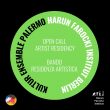 Application deadline: January 31.
Application deadline: January 31.
 With the volume "Bottroper Protokolle" (Suhrkamp 1968) [...] the television director and doctor of literature, committed feminist and communist Erika Runge (1939–2023) coined the term and practice of "Dokumentarliteratur" (documentary literature). [...]
With the volume "Bottroper Protokolle" (Suhrkamp 1968) [...] the television director and doctor of literature, committed feminist and communist Erika Runge (1939–2023) coined the term and practice of "Dokumentarliteratur" (documentary literature). [...]
 In her text, Natascha Sadr Haghighian grapples with the dialectics of looking in German structural racism by returning to the how’s and why’s of “not seeing” the NSU [...].
In her text, Natascha Sadr Haghighian grapples with the dialectics of looking in German structural racism by returning to the how’s and why’s of “not seeing” the NSU [...].
 Mobile technology and digital connectivity are essential components of the soldier’s experience on the front line. Armed forces operating in the field always project themselves into a virtual script and go into battle driven by imaginary spectacles. By RAMÓN REICHERT
Mobile technology and digital connectivity are essential components of the soldier’s experience on the front line. Armed forces operating in the field always project themselves into a virtual script and go into battle driven by imaginary spectacles. By RAMÓN REICHERT
 “We tried to get over this disturbance by learning to suppress the perception of racist structures. This in turn made it difficult to develop a commonality, a conversation about the experience of racism. [...] ”
“We tried to get over this disturbance by learning to suppress the perception of racist structures. This in turn made it difficult to develop a commonality, a conversation about the experience of racism. [...] ”
 Serving as an extensive guide to a key concept in contemporary art, design, and media theory, "Operational Images" explores the implications of machine vision and the limits of human agency. [...]
Serving as an extensive guide to a key concept in contemporary art, design, and media theory, "Operational Images" explores the implications of machine vision and the limits of human agency. [...]
 Sicily, 2020. In a godforsaken landscape, a sudden change in weather finally marks the end of a suffocating summer. [...]
Sicily, 2020. In a godforsaken landscape, a sudden change in weather finally marks the end of a suffocating summer. [...]
 Foscarini's research focuses on migration in the border areas between Bosnia-Herzegovina, Serbia and Croatia [...]
Foscarini's research focuses on migration in the border areas between Bosnia-Herzegovina, Serbia and Croatia [...]
Sieh dir diesen Beitrag auf Instagram an Ein Beitrag geteilt von Duisburger Filmwoche (@duisburgerfilmwoche)
November 6th, 2023 — Projects / EventFor those happening to be in Sydney in the first week of November, this might be an interesting event to attend: "Exo-Mnemonics: Memory, Media Machines. A Symposium"
October 24th, 2023 — Rosa Mercedes A film evening together with the theorist and filmmaker Domietta Torlasco.
A film evening together with the theorist and filmmaker Domietta Torlasco.
A residency in collaboration with Artists at Risk and Goethe-Institut
October 12th, 2023 — 2023 “The starting point is the relationship between Europe’s prosperity and Africa’s poverty; Europe’s destruction of societies and cultures, and the simultaneous use of Christianity and racial theories as justification for a massive exploitation of the colonized.” (SN)
“The starting point is the relationship between Europe’s prosperity and Africa’s poverty; Europe’s destruction of societies and cultures, and the simultaneous use of Christianity and racial theories as justification for a massive exploitation of the colonized.” (SN)
From the middle of September, critical theorist and filmmaker Domietta Torlasco is in Berlin for a month research stay at the Harun Farocki Institut.
September 21st, 2023 — Projects / Research An initiative of Kultur Ensemble Palermo, the Goethe-Institut, the Institut Français, both Palermo, and the Harun Farocki Institut, Berlin.
An initiative of Kultur Ensemble Palermo, the Goethe-Institut, the Institut Français, both Palermo, and the Harun Farocki Institut, Berlin.
 How to transform a bloody war into something that exists in the negative: not war? By VANESSA GRAVENOR
How to transform a bloody war into something that exists in the negative: not war? By VANESSA GRAVENOR
 The problem boils down to knowing how to inscribe oneself into a critical position that is likely to help one maintain a distanced relationship with these images. By DORK ZABUNYAN
The problem boils down to knowing how to inscribe oneself into a critical position that is likely to help one maintain a distanced relationship with these images. By DORK ZABUNYAN
 “Operational” turns out to be characterized by mutual connections and interdependencies, which is why this politically motivated and complicating concept is so useful for opening up the diverse interface processes that are in use today on a planetary scale. By JAN DISTELMEYER
“Operational” turns out to be characterized by mutual connections and interdependencies, which is why this politically motivated and complicating concept is so useful for opening up the diverse interface processes that are in use today on a planetary scale. By JAN DISTELMEYER
 A cooperation with the Berliner Gazette.
A cooperation with the Berliner Gazette.
An event organized by the Farocki Forum in Zurich.
May 24th, 2023 — 2023 Today, the “operational image” of the smart bomb and the drone robot has been joined and partly replaced by a wide array of image and text operations, which are constantly blurring the lines between old school propaganda, visual war reporting, citizen online journalism, open source image forensics and investigative aesthetics. By TOM HOLERT
Today, the “operational image” of the smart bomb and the drone robot has been joined and partly replaced by a wide array of image and text operations, which are constantly blurring the lines between old school propaganda, visual war reporting, citizen online journalism, open source image forensics and investigative aesthetics. By TOM HOLERT
 "The curriculum has been condensed, there’s more emphasis than before on learning the crafts, collaboration in groups is intensified, and there’s a stronger coordination between theory and practice-based courses." (Rathsack)
"The curriculum has been condensed, there’s more emphasis than before on learning the crafts, collaboration in groups is intensified, and there’s a stronger coordination between theory and practice-based courses." (Rathsack)
See German post.
March 18th, 2023 — Archive / ShowcaseSee German post.
February 28th, 2023 — Archive / Showcase "This is about at least four women. One of them fictional; all the others, infected by this fiction."
"This is about at least four women. One of them fictional; all the others, infected by this fiction."
 In collaboration with the Farocki Forum in Zurich and KINDL in Berlin.
In collaboration with the Farocki Forum in Zurich and KINDL in Berlin.
 A conversation on INTRODUCTION TO THE END OF AN ARGUMENT: (INTIFADA) SPEAKING FOR ONESELF…SPEAKING FOR OTHERS… by Jayce Salloum and Elia Suleiman in 1990 that took place two months after the Russian invasion of Ukraine. There, similar essentializations, demonizing or belittling Ukrainians and denying the historical legitimacy of the Ukrainian state, justify the “special operation” that this outright imperialist war has been cloaked as. By ALAA MANSOUR and PHILIP WIDMANN
A conversation on INTRODUCTION TO THE END OF AN ARGUMENT: (INTIFADA) SPEAKING FOR ONESELF…SPEAKING FOR OTHERS… by Jayce Salloum and Elia Suleiman in 1990 that took place two months after the Russian invasion of Ukraine. There, similar essentializations, demonizing or belittling Ukrainians and denying the historical legitimacy of the Ukrainian state, justify the “special operation” that this outright imperialist war has been cloaked as. By ALAA MANSOUR and PHILIP WIDMANN
Thanks to a private donation, we can continue the Harun Farocki Residency with Ukrainian filmmaker Alina Matochkina in 2023.
January 15th, 2023 — 2023See German post.
January 8th, 2023 — Archive / ShowcaseSee German post.
December 31st, 2022 — Archive / ShowcaseSee German post.
November 15th, 2022 — Archive / Showcase The retrospective explores the work of the Lithuanian filmmaker, anthropologist and archaeologist, whose focus was everyday life lived in the midst of war and in spite of it.
The retrospective explores the work of the Lithuanian filmmaker, anthropologist and archaeologist, whose focus was everyday life lived in the midst of war and in spite of it.
See German post.
October 30th, 2022 — Archive / ShowcaseA cooperation with the Berliner Gazette.
October 11th, 2022 — Projects / Event A residency in collaboration with Artists at Risk and the Goethe-Institut.
A residency in collaboration with Artists at Risk and the Goethe-Institut.
See German post.
September 30th, 2022 — Archive / Showcase And now, is there a way for me to see you beyond my own reflections upon you, in order to behold your power? An essay by KEVIN B. LEE
And now, is there a way for me to see you beyond my own reflections upon you, in order to behold your power? An essay by KEVIN B. LEE
With an exhibition and a panel discussion.
September 16th, 2022 — Projects / EventFrom September 2022 to August 2023 as part of the Berlin Senate's "Ad Hoc Fellowship Program."
September 16th, 2022 — Residency / 2022Narrative interweaving conceived by Haytham el-Wardany walking along a thread of various historical and fictional events and alphabetical and social system from the Paris Commune to a hidden spell.
September 15th, 2022 — Rosa Mercedes / 04 The documentary yield of humor and satire in Wuhan Diaries by the anonymous z and his friends narrates how daily life thrives in the thicket of pandemic priorities.
The documentary yield of humor and satire in Wuhan Diaries by the anonymous z and his friends narrates how daily life thrives in the thicket of pandemic priorities.
Otty Widasari’s moving-image documents locate people, histories, and development in a complex journey of political and cultural transformation through what she calls “poetic science.”
September 15th, 2022 — Rosa Mercedes / 04 Clio Nicastro analyzes the different notions and involvements of empathy, both in relation to films, performative works and texts by different authors and as well within Rosa Mercedes Issue 04.
Clio Nicastro analyzes the different notions and involvements of empathy, both in relation to films, performative works and texts by different authors and as well within Rosa Mercedes Issue 04.
See German post.
August 31st, 2022 — Archive / Showcase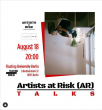 A talk about her artistic practice during the war and about the dreams of Ukrainians that she collected.
A talk about her artistic practice during the war and about the dreams of Ukrainians that she collected.
 T2T is a project initiated by Moad Musbahi with Tom Holert/Harun Farocki Institut.
T2T is a project initiated by Moad Musbahi with Tom Holert/Harun Farocki Institut.
 Presentation of the essay film by Hans Carlsson, realized as part of his Harun Farocki Residency in Berlin in winter of 2021/22 and a talk including Sarat Maharaj and Doreen Mende.
Presentation of the essay film by Hans Carlsson, realized as part of his Harun Farocki Residency in Berlin in winter of 2021/22 and a talk including Sarat Maharaj and Doreen Mende.
See German post.
July 31st, 2022 — Archive / Showcase Why is it that the visible is constantly privileged as something truth-bearing in modernity when, in many cases, it provides very little, or in some cases virtually no information at all?
An essay by HANS CARLSSON.
Why is it that the visible is constantly privileged as something truth-bearing in modernity when, in many cases, it provides very little, or in some cases virtually no information at all?
An essay by HANS CARLSSON.
An interview with Cathy Lee Crane by Lauren Wissot.
July 19th, 2022 — Residency / 2020/22 A text by ERHARD SCHÜTTPELZ. See German post.
A text by ERHARD SCHÜTTPELZ. See German post.
 Excerpts from an introduction to Harun Farocki’s oeuvre in relation to Egypt and the Arab region by ALI HUSSEIN AL-ADAWY.
Excerpts from an introduction to Harun Farocki’s oeuvre in relation to Egypt and the Arab region by ALI HUSSEIN AL-ADAWY.
 A 14-channel installation by our 4th HaFI residency guest Cathy Lee Crane exploring the history of the western border between the United States of Mexico and the United States of America.
EXTENDED OPENING HOURS: Thu. July 28 from 4-7 p.m.; Tue. Aug. 2 from 1-5 p.m.
A 14-channel installation by our 4th HaFI residency guest Cathy Lee Crane exploring the history of the western border between the United States of Mexico and the United States of America.
EXTENDED OPENING HOURS: Thu. July 28 from 4-7 p.m.; Tue. Aug. 2 from 1-5 p.m.
 In (X)-trACTION a collaborative of five media artists, including Cathy Lee Crane, share their latest works to reflect on and maybe even destroy the term “extraction.”
In (X)-trACTION a collaborative of five media artists, including Cathy Lee Crane, share their latest works to reflect on and maybe even destroy the term “extraction.”
 CROSSING COLUMBUS and the short film ON THE LINE (2010) are distant companion pieces exploring the crossing of lines that mark Mexican territory.
CROSSING COLUMBUS and the short film ON THE LINE (2010) are distant companion pieces exploring the crossing of lines that mark Mexican territory.
 Presented by HaFI on the occasion of Cathy Lee Crane's Harun Farocki Residency in Berlin.
Open Call deadline: July 15, 2022
Presented by HaFI on the occasion of Cathy Lee Crane's Harun Farocki Residency in Berlin.
Open Call deadline: July 15, 2022
See German post.
June 27th, 2022 — Archive / Showcase The historian Farabi Fakih discusses the formation of managerialism in decolonizing Indonesia. Based on his recent book "Authoritarian Modernization in Indonesia’s Early Independence Period," Fakih introduces the making of the indigenous Indonesian manager.
The historian Farabi Fakih discusses the formation of managerialism in decolonizing Indonesia. Based on his recent book "Authoritarian Modernization in Indonesia’s Early Independence Period," Fakih introduces the making of the indigenous Indonesian manager.
 “The first year group at the Filmhochschule München. Tabula rasa. Any long-held sentimentality about watching films was supposed to disappear, university knowledge shredded, scattered. All that remained was our own work and watching, watching, watching.” (Ingemo Engström)
“The first year group at the Filmhochschule München. Tabula rasa. Any long-held sentimentality about watching films was supposed to disappear, university knowledge shredded, scattered. All that remained was our own work and watching, watching, watching.” (Ingemo Engström)
 Together with Artists at Risk.
Together with Artists at Risk.
Start of the residency: June 8.
May 16th, 2022 — Residency / 2020/22 An article by Christoph Balzar on how German museums with their so-called ethnographic collections have successfully defied anti-colonial and institutional critique.
An article by Christoph Balzar on how German museums with their so-called ethnographic collections have successfully defied anti-colonial and institutional critique.
 In this 1975 television production, Farocki shows and comments on excerpts from the film "Song of Ceylon" by Basil Wright.
In this 1975 television production, Farocki shows and comments on excerpts from the film "Song of Ceylon" by Basil Wright.
 "What does it mean to hang colonial paintings in a university museum in Manila?" An essay by Patrick Flores.
"What does it mean to hang colonial paintings in a university museum in Manila?" An essay by Patrick Flores.
 An interview by Ying Sze Pek: Ho Tzu Nyen discusses three of his recent productions: "The Critical Dictionary of Southeast Asia" (2017–ongoing), "Hotel Aporia" (2019), and "Night March of Hundred Monsters" (2021–22).
An interview by Ying Sze Pek: Ho Tzu Nyen discusses three of his recent productions: "The Critical Dictionary of Southeast Asia" (2017–ongoing), "Hotel Aporia" (2019), and "Night March of Hundred Monsters" (2021–22).
 An essay by Nora M. Alter on Farocki's television film on "About 'Song of Ceylon' by Basil Wright," (1975).
An essay by Nora M. Alter on Farocki's television film on "About 'Song of Ceylon' by Basil Wright," (1975).
An artistic contribution in form of a textual weaving process of real encounters and unexpected delays around a gift and a yet-to-come film once named Meat Bag.
May 13th, 2022 — Rosa Mercedes / 04 A series of drawings by Andreas Siekmann, which unfold around the state-directed violence on fleeing bodies and the global spread and supranational intensification of the fourth power: the Exclusive as an excluding force.
A series of drawings by Andreas Siekmann, which unfold around the state-directed violence on fleeing bodies and the global spread and supranational intensification of the fourth power: the Exclusive as an excluding force.
 How to speak when to speak is to find yourself as if at a confessional, an interrogation booth, a court of law, or a border?
An essay by Soyoung Yoon.
How to speak when to speak is to find yourself as if at a confessional, an interrogation booth, a court of law, or a border?
An essay by Soyoung Yoon.
 An artistic contribution by Amy Lien and Enzo Camacho, based on their ongoing study of a church mural by Alfonso Ossorio on the island of Negros in the Philippines.
An artistic contribution by Amy Lien and Enzo Camacho, based on their ongoing study of a church mural by Alfonso Ossorio on the island of Negros in the Philippines.
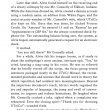 The writer Glenn Diaz reflects on the possibilities and limitations of empathy as a social instrument.
The writer Glenn Diaz reflects on the possibilities and limitations of empathy as a social instrument.
 The artist Alice Creischer provides the footnotes to her work with the same title in which the history of New Caledonia coincides with the present of Tropical Islands Resorts in Brandenburg.
The artist Alice Creischer provides the footnotes to her work with the same title in which the history of New Caledonia coincides with the present of Tropical Islands Resorts in Brandenburg.
 An article by Zikri Rahman on the undocumented and stateless seafaring Bajau Laut community and the alternative pedagogical practice of the network of schools Sekolah Alternatif.
An article by Zikri Rahman on the undocumented and stateless seafaring Bajau Laut community and the alternative pedagogical practice of the network of schools Sekolah Alternatif.
 An artistic contribution by Lim Paik Yin that approaches the practice of Bantengan while reflecting on its own approximation.
An artistic contribution by Lim Paik Yin that approaches the practice of Bantengan while reflecting on its own approximation.
An article by Ramon Guillermo on the practice of translation by analyzing the openings and closures of Walter Benjamin’s essay „The Task of the Translator.“
May 13th, 2022 — Rosa Mercedes / 04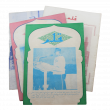 An article by Nazir Harith Fadzilah on the revival of the Jawi language through the medium of education, publication and research.
An article by Nazir Harith Fadzilah on the revival of the Jawi language through the medium of education, publication and research.
"We collect these videos for future researchers and documentary filmmakers so that they could use the catalog and include these videos in their work (after coordinating the terms of use with their authors)." By DOCUDAYS UA
May 11th, 2022 — Rosa Mercedes / 05A project to support Ukrainians who are recording the horrors of war. By TIMOTHY SNYDER
May 10th, 2022 — Rosa Mercedes / 05See German post.
April 30th, 2022 — Archive / Showcase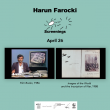 Part of "Coincidences in Prepositions", a publication program conceptualized to review questions, propositions and solutions that have been set up in the dis/continuities of many colonial milieus...
Part of "Coincidences in Prepositions", a publication program conceptualized to review questions, propositions and solutions that have been set up in the dis/continuities of many colonial milieus...
 We live with, through and by stories. We make stories alive, and they keep us alive, it's a two-way process. By MARICHKA LUKIANCHUK
We live with, through and by stories. We make stories alive, and they keep us alive, it's a two-way process. By MARICHKA LUKIANCHUK
 The Ukraine war is now the third major crisis in a sequence (after the so-called refugee crisis and the pandemic) that seems to come out of nowhere. But it doesn’t come out of nowhere, any more than the other two. By MARK TERKESSIDIS
The Ukraine war is now the third major crisis in a sequence (after the so-called refugee crisis and the pandemic) that seems to come out of nowhere. But it doesn’t come out of nowhere, any more than the other two. By MARK TERKESSIDIS
See German post.
March 31st, 2022 — Archive / ShowcaseWe second the statements issued by other organizations that call for the immediate release of the eleven arrested women and the suspension of the ongoing persecution of the seven already released ones.
March 24th, 2022 — Rosa MercedesSkip Norman/Contexts: One evening in March 1969, thirty-three-year-old Bobby Seale gave a speech in the packed-to-capacity main hall of Copenhagen’s Grundtvigs Hus.
March 2022 — Rosa Mercedes / 03 / ContextsIn the attempt to contribute to the distribution of information on organizations, initiatives, and networks of support and aid, this list of links may complement already existing repositories; it will be augmented continuously from now on.
March 13th, 2022 — Rosa Mercedes / 05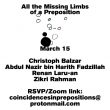 A series of non-thematic events on Zoom that discursify the inextricability of ‘prepositions’ and propositions...
A series of non-thematic events on Zoom that discursify the inextricability of ‘prepositions’ and propositions...
 The issue is dedicated to Harun Farocki's only directorial work for the theatre.
The issue is dedicated to Harun Farocki's only directorial work for the theatre.
 To oppose the epistemological assaults of the current war and the rule of operational images. Rosa Mercedes 05: Invitation to contribute
To oppose the epistemological assaults of the current war and the rule of operational images. Rosa Mercedes 05: Invitation to contribute
"One has to wish for images that precisely reproduce small singularities of a specific time." (Farocki)
February 28th, 2022 — Archive / ShowcaseSkip Norman/Contexts: What kind of diasporic kinship and friendship lies behind the joint work of Norman, Cullen, Brooks, and Foreman?
February 2022 — Rosa Mercedes / 03 / Contexts A cooperation with the Berliner Gazette.
A cooperation with the Berliner Gazette.
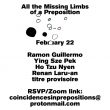 A series of non-thematic events on Zoom that discursify the inextricability of ‘prepositions’ and propositions...
A series of non-thematic events on Zoom that discursify the inextricability of ‘prepositions’ and propositions...
Skip Norman/Contexts: Skip Norman’s films made between 1966 and 1969 while a student at the DFFB were followed by the independent productions On Africa and Washington DC, November 1970.
February 2022 — Rosa Mercedes / 03 / ContextsSee German post.
January 31st, 2022 — Archive / Showcase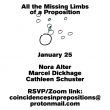 A series of non-thematic events on Zoom that discursify the inextricability of ‘prepositions’ and propositions in/from/with each other...
A series of non-thematic events on Zoom that discursify the inextricability of ‘prepositions’ and propositions in/from/with each other...
Skip Norman/Contexts: The Blackman’s Volunteer Army of Liberation (not to be confused with the Black Liberation Army), was one of many Black radical groups affiliated with the Black Muslim Movement in the late 1960s.
January 2022 — Rosa Mercedes / 03 / Contexts An insight into the research behind Farocki’s installation Comparison via a Third and its cinematic version In Comparison
An insight into the research behind Farocki’s installation Comparison via a Third and its cinematic version In Comparison
Skip Norman/Contexts: In 1976, Skip Norman began studying for a BA in the Liberal Arts at the College of Arts and Sciences, the Ohio State University in Columbus, Ohio.
January 2022 — Rosa Mercedes / 03 / ContextsSkip Norman/Contexts: Blues People, the title of Skip Norman’s notorious 1968 short that features the naked bodies and voices of a white woman and a Black man, quotes the title of LeRoi Jones’ book of 1963, Blues People: Negro Music in White America.
December 2021 — Rosa Mercedes / 03 / ContextsSee German post.
December 21st, 2021 — Archive / Showcase Information about BLUES PEOPLE: "There are four main elements which mediate the film’s intentions: music, text, stills, and black film."
Information about BLUES PEOPLE: "There are four main elements which mediate the film’s intentions: music, text, stills, and black film."
 A comprehensive research on transnational learning at the DFFB by Madeleine Bernstorff.
A comprehensive research on transnational learning at the DFFB by Madeleine Bernstorff.
 An essay by Karina Griffith on Black Femininity in Skip Norman's Strange Fruit.
An essay by Karina Griffith on Black Femininity in Skip Norman's Strange Fruit.
 A conversation between Greg de Cuir Jr and Michael Boyce Gillespie on Skip Norman.
A conversation between Greg de Cuir Jr and Michael Boyce Gillespie on Skip Norman.
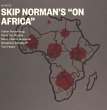 Showing Skip Norman's ON AFRICA.
Showing Skip Norman's ON AFRICA.
Skip Norman/Contexts: Impressed by the direct cinema of Albert Maysles, Richard Leacock, and D. A. Pennebaker, Klaus Wildenhahn (1930–2018) translated their methods to the West German context.
December 2021 — Rosa Mercedes / 03 / Contexts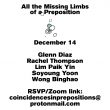 A series of non-thematic events on Zoom that discursify the inextricability of ‘prepositions’ and propositions...
A series of non-thematic events on Zoom that discursify the inextricability of ‘prepositions’ and propositions...
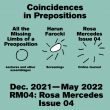 Coincidences in Prepositions is a publication program conceptualized to review questions, propositions, and solutions that have been set up in the dis/continuities of many colonial milieus...
Coincidences in Prepositions is a publication program conceptualized to review questions, propositions, and solutions that have been set up in the dis/continuities of many colonial milieus...
See German post.
November 30th, 2021 — Archive / ShowcaseSkip Norman/Contexts: From the late 1960s to the 1990s, the WDR “Filmredaktion” offered remarkable production opportunities for young filmmakers, many of them graduates (or relegates) from the new film schools in Berlin and Munich.
November 2021 — Rosa Mercedes / 03 / ContextsSkip Norman/Contexts: "It becomes obvious after analyzing the content of most films on the Black experience by Black filmmakers that they are all, in one way or another, films of resistance. Consciously or unconsciously, overtly or covertly, they have elements or images that resist forces in society that oppress Black people." (Alonzo Crawford)
November 2021 — Rosa Mercedes / 03 / ContextsSee German post.
October 31st, 2021 — Archive / ShowcaseSkip Norman/Contexts: During his years as a student at the Deutsche Film- und Fernsehakademie Berlin (DFFB) between 1966 and 1969, Skip Norman was as prolific a cinematographer as he was a director.
October 2021 — Rosa Mercedes / 03 / ContextsSkip Norman/Contexts: In a document compiled for the eighteenth birthday of the Deutsche Film- und Fernsehakademie Berlin (DFFB) in 1984, Skip Norman lists the festivals where the films he directed were screened.
October 2021 — Rosa Mercedes / 03 / Contexts For the fifth HaFI residency in collaboration with IASPIS, we have invited Malmö-based artist, curator and writer Hans Carlsson.
For the fifth HaFI residency in collaboration with IASPIS, we have invited Malmö-based artist, curator and writer Hans Carlsson.
 Peter Hoffmann pointed us to Lutz Mommartz’ film Wählt ADF (Vote ADF). The film can be seen on Mommartz’ website.
Peter Hoffmann pointed us to Lutz Mommartz’ film Wählt ADF (Vote ADF). The film can be seen on Mommartz’ website.
 Conceived as a year-long project, our partner Berliner Gazette will initiate diverse activities, most importantly a series of texts and a conference.
Conceived as a year-long project, our partner Berliner Gazette will initiate diverse activities, most importantly a series of texts and a conference.
See German post.
September 27th, 2021 — Archive / Showcase The first HaFI book in collaboration with the Viennese publishing house Synema.
The first HaFI book in collaboration with the Viennese publishing house Synema.
 An online event organized by Journal of Visual Culture and HaFI.
An online event organized by Journal of Visual Culture and HaFI.
 "Kein Schöner Archiv" documents the intangible cultural heritage of the postmigrant society.
"Kein Schöner Archiv" documents the intangible cultural heritage of the postmigrant society.
See German post.
August 31st, 2021 — Archive / Showcase![]() Our cooperation partners organize for the second time the Radical Film Network Meeting Berlin. With a contribution from Elske Rosenfeld based on the HaFI 014 pamphlet.
Our cooperation partners organize for the second time the Radical Film Network Meeting Berlin. With a contribution from Elske Rosenfeld based on the HaFI 014 pamphlet.
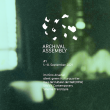 Das Arsenal organizes the first edition of the "Archival Assembly" festival, which brings together film archives and film archival projects, including HaFI, for an exchange with the public.
Das Arsenal organizes the first edition of the "Archival Assembly" festival, which brings together film archives and film archival projects, including HaFI, for an exchange with the public.
See German post.
July 31st, 2021 — Archive / ShowcaseSee German post.
June 30th, 2021 — Archive / Showcase Equal part powerful and moving, angry and heartbreaking, righteous and desperate, hopeless and demanding of a better future, together this polyphony posits if not an actual antidote then certainly abundant curative reflections to the disease and ways we might navigate this ongoing crisis.
Equal part powerful and moving, angry and heartbreaking, righteous and desperate, hopeless and demanding of a better future, together this polyphony posits if not an actual antidote then certainly abundant curative reflections to the disease and ways we might navigate this ongoing crisis.
 Volume 5, now released, brings together all of the texts published in the years 1986-2000 and offers insights into some of Farocki's seminal cinematic and installation works from this period.
Volume 5, now released, brings together all of the texts published in the years 1986-2000 and offers insights into some of Farocki's seminal cinematic and installation works from this period.
See German post.
May 15th, 2021 — Archive / Showcasesee German post.
May 3rd, 2021 — Archive / Showcase A comprehensive essay by Gerd Conradt on his friend and fellow student.
A comprehensive essay by Gerd Conradt on his friend and fellow student.
 A conversation with Carlos Bustamante about Skip Norman.
A conversation with Carlos Bustamante about Skip Norman.
 In his first film Das Zimmer, Johannes Beringer processes his first impressions of West Berlin.
In his first film Das Zimmer, Johannes Beringer processes his first impressions of West Berlin.
 In Situationen, Johannes Beringer captures the presence of the allied forces in the city, shows teenagers dancing in a dance hall and film students discussing the future of the film school.
In Situationen, Johannes Beringer captures the presence of the allied forces in the city, shows teenagers dancing in a dance hall and film students discussing the future of the film school.
 Recollections of Skip Norman by Johannes Beringer.
Recollections of Skip Norman by Johannes Beringer.
 Helke Sander’s memories of Skip Norman.
Helke Sander’s memories of Skip Norman.
 Georg Lehner on collaborating with Skip Norman on one of his films.
Georg Lehner on collaborating with Skip Norman on one of his films.
 Brigitte Tast's collage and the editorial from Frauen und Film, Issue 5 (1975)
Brigitte Tast's collage and the editorial from Frauen und Film, Issue 5 (1975)
A conversation between Shirikiana and Haile Gerima.
April 2021 — Rosa Mercedes / 03 / B Klaus Wyborny on his time at the cinema department in Columbus.
Klaus Wyborny on his time at the cinema department in Columbus.
 These photographs were enclosed with a letter sent by Skip Norman to Carlos Bustamante in August 1982.
These photographs were enclosed with a letter sent by Skip Norman to Carlos Bustamante in August 1982.
 In HaFI 014, artist Elske Rosenfeld reflects on the reading of the fragmentary archival materials for Farocki's unfinished film "Hard Selling" (1991) with her own text/image essay.
In HaFI 014, artist Elske Rosenfeld reflects on the reading of the fragmentary archival materials for Farocki's unfinished film "Hard Selling" (1991) with her own text/image essay.
see German post.
March 31st, 2021 — Archive / Showcase What is highlighted in the present discussion are the possibilities offered by bringing to light not just what has been secluded but also the opportunities that emerge from revealing their structures of seclusion. It might well be worthwhile promoting a discourse such as that which has emerged around embarrassment. By DAVID DIBOSA
What is highlighted in the present discussion are the possibilities offered by bringing to light not just what has been secluded but also the opportunities that emerge from revealing their structures of seclusion. It might well be worthwhile promoting a discourse such as that which has emerged around embarrassment. By DAVID DIBOSA
see German post.
February 28th, 2021 — Archive / Showcase "Lie," "fraud," "perpetrator," "victim," "forgery," "deception," "censorship," "deprivation of liberty," "betrayal," "violence," and, yes, "conspiracy" — these are not arbitrarily chosen expressions of everyday culture, but juridifying terms used for rhetorical weaponization in all parts of the political sphere. By FELIX REIDENBACH
"Lie," "fraud," "perpetrator," "victim," "forgery," "deception," "censorship," "deprivation of liberty," "betrayal," "violence," and, yes, "conspiracy" — these are not arbitrarily chosen expressions of everyday culture, but juridifying terms used for rhetorical weaponization in all parts of the political sphere. By FELIX REIDENBACH
 This short snippet of silent 8 mm film was filmed by Ingrid Oppermann in West-Berlin, possibly close to her apartment in Kurfürstenstraße, where Harun Farocki’s The Words of the Chairman (1967) was shot.
This short snippet of silent 8 mm film was filmed by Ingrid Oppermann in West-Berlin, possibly close to her apartment in Kurfürstenstraße, where Harun Farocki’s The Words of the Chairman (1967) was shot.
 On December 22, 1933, I was born in Baltimore, Maryland, U.S.A., as a first son. I spent my childhood in Washington, D.C. […]
On December 22, 1933, I was born in Baltimore, Maryland, U.S.A., as a first son. I spent my childhood in Washington, D.C. […]
 Gerd Conradt went to see Skip Norman in North Cyprus in 2002. Their conversation focuses on Holger Meins, who, like Conradt and Skip Norman, but also Harun Farocki, Helke Sander or Hartmut Bitomsky, started to study film at DFFB in 1966.
Gerd Conradt went to see Skip Norman in North Cyprus in 2002. Their conversation focuses on Holger Meins, who, like Conradt and Skip Norman, but also Harun Farocki, Helke Sander or Hartmut Bitomsky, started to study film at DFFB in 1966.
 From time to time, DFFB conducted surveys among their alumni. This one, entitled “DFFB ‘volljährig’” (DFFB “adult”) was published in 1984 at the occasion of the institution’s 18th birthday.
From time to time, DFFB conducted surveys among their alumni. This one, entitled “DFFB ‘volljährig’” (DFFB “adult”) was published in 1984 at the occasion of the institution’s 18th birthday.
 A letter sent by Skip Norman to Helene Schwarz, the secretary who had been at DFFB since the school's beginnings and was an important confidante for many of the students.
A letter sent by Skip Norman to Helene Schwarz, the secretary who had been at DFFB since the school's beginnings and was an important confidante for many of the students.
Skip Norman submitted this CV as part of his interdisciplinary PhD dissertation in Anthropology, Sociology, Photography and Cinema in 1984. It is entitled “An Examination of Centenary United Methodist Church using the Photograph as Artifact.”
January 2021 — Rosa Mercedes / 03 / A Zora Neale Hurston emphasized the dynamics of the homogenous black community. Her creativity was rooted in the folklore of black people. As a result, there was little need to portray the white world.
Zora Neale Hurston emphasized the dynamics of the homogenous black community. Her creativity was rooted in the folklore of black people. As a result, there was little need to portray the white world.
 Culture is the acquired knowledge that people use to interpret experience and to generate behavior. This cultural knowledge is like a recipe for organizing the necessary ingredients for a viable social life.
Culture is the acquired knowledge that people use to interpret experience and to generate behavior. This cultural knowledge is like a recipe for organizing the necessary ingredients for a viable social life.
 Notions of ‘regulation’ or ‘control’ meet with the long-venerated dreams of automation, to naturalise as the work of algorithms, not people. By JESS HENDERSON
Notions of ‘regulation’ or ‘control’ meet with the long-venerated dreams of automation, to naturalise as the work of algorithms, not people. By JESS HENDERSON
 Contributions from individuals and communities both inside and outside of academia, in particular, from activists, artists, filmmakers, policymakers and researchers are welcome. Extended Deadline: February 15, 2021.
Contributions from individuals and communities both inside and outside of academia, in particular, from activists, artists, filmmakers, policymakers and researchers are welcome. Extended Deadline: February 15, 2021.
 This idea, that the virus would only effect the other, someone somewhere far, collapsed in the following days. BY BASTARDPRODIGE
This idea, that the virus would only effect the other, someone somewhere far, collapsed in the following days. BY BASTARDPRODIGE
 They ate more, took off again, and moved to the next tree. We walked with them. BY ISOBEL WOHL
They ate more, took off again, and moved to the next tree. We walked with them. BY ISOBEL WOHL
see German post.
January 2nd, 2021 — Archive / Showcasesee German post.
December 22nd, 2020 — Archive / Showcase Organized by the Berliner Gazette at Haus der Statistik from November 7 - 28, 2020. A cooperation with HaFI.
Organized by the Berliner Gazette at Haus der Statistik from November 7 - 28, 2020. A cooperation with HaFI.
see German post.
November 28th, 2020 — Archive / ShowcaseHaFI publications in Korean and Turkish
November 16th, 2020 — Projects / Publication However, it’s okay to have Game Night once in a while, because it allows us to socialize. Using wrinkles to toggle dry light. By DEATH CLASS
However, it’s okay to have Game Night once in a while, because it allows us to socialize. Using wrinkles to toggle dry light. By DEATH CLASS
 A glimpse into the genesis of IMAGES OF THE WORLD AND THE INSCRIPTION OF WAR (1988).
To be released shortly, HaFI 013 can already be ordered at Motto Books.
A glimpse into the genesis of IMAGES OF THE WORLD AND THE INSCRIPTION OF WAR (1988).
To be released shortly, HaFI 013 can already be ordered at Motto Books.
 Organized by the Berliner Gazette, the Winter School “Silent Works” investigates possibilities for re-inventing ‘the school’ along the lines of ‘the factory.’
Organized by the Berliner Gazette, the Winter School “Silent Works” investigates possibilities for re-inventing ‘the school’ along the lines of ‘the factory.’
... regarding aerial reconnaisance photographs of Auschwitz-Birkenau taken during World War II
October 30th, 2020 — Archive / Showcase The production of knowledge, fake news, has no source, no center. There is no author. By VLADIMIR MILADINOVIĆ and STEPHENIE YOUNG
The production of knowledge, fake news, has no source, no center. There is no author. By VLADIMIR MILADINOVIĆ and STEPHENIE YOUNG
see German post.
September 30th, 2020 — Archive / Showcase “The game on TV is Tom and Jerry, the game in the EU is refugees and the police.” By NIKA AUTOR
“The game on TV is Tom and Jerry, the game in the EU is refugees and the police.” By NIKA AUTOR
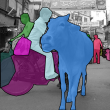 The current crisis is making many of us increasingly amenable to other forms of more mundane automation. By JOEL McKIM
The current crisis is making many of us increasingly amenable to other forms of more mundane automation. By JOEL McKIM
With a donation you can support our work on the English autobiography.
September 15th, 2020 — About us / Support Bielefeld University enables the further production of preview films from the filmography of Harun Farocki.
Bielefeld University enables the further production of preview films from the filmography of Harun Farocki.
 The Open Call runs until September 25, 2020.
The Open Call runs until September 25, 2020.
 A panel discussion about Berlin vs. Amazon and the Berliner Gazette's Silent Works project, a partnership with HaFI.
A panel discussion about Berlin vs. Amazon and the Berliner Gazette's Silent Works project, a partnership with HaFI.
 HaFI participation with a panel dedicated to Farocki and his TV collaboration with the WDR.
HaFI participation with a panel dedicated to Farocki and his TV collaboration with the WDR.
 How can, how should these images be looked at? And how do they unsettle the contemporary gaze?
How can, how should these images be looked at? And how do they unsettle the contemporary gaze?
 If we have reason to panic, what do we do with it, where do we go? Again, how do we get out of here? By DANIEL A. BARBER
If we have reason to panic, what do we do with it, where do we go? Again, how do we get out of here? By DANIEL A. BARBER
See German post.
August 30th, 2020 — Archive / Showcase More people are having powerful dreams that get their attention than in typical times. By JORDAN BASEMAN
More people are having powerful dreams that get their attention than in typical times. By JORDAN BASEMAN
 We know that their echoes will continue reverberating in the system’s cracks, each time becoming louder and more visible. By ARTS CATALYST
We know that their echoes will continue reverberating in the system’s cracks, each time becoming louder and more visible. By ARTS CATALYST
 Bring it on (bring it all up) say the cards, and let everything bleed ... By PLASTIQUE FANTASTIQUE
Bring it on (bring it all up) say the cards, and let everything bleed ... By PLASTIQUE FANTASTIQUE
 Remains of magnolias blown away/Branches fall. Power out. By ALEXANDRA DÉLANO ALONSO
Remains of magnolias blown away/Branches fall. Power out. By ALEXANDRA DÉLANO ALONSO
![]() There is something visceral about the refusal to place a protective barrier across the mouth and nose, and to do so in the name of “freedom” or “just because.” By KIMBERLY JUANITA BROWN
There is something visceral about the refusal to place a protective barrier across the mouth and nose, and to do so in the name of “freedom” or “just because.” By KIMBERLY JUANITA BROWN
 The kind of hope that I will speak of here is immanent, yet precisely as the immanent force of finitude. By JOHN PAUL RICCO
The kind of hope that I will speak of here is immanent, yet precisely as the immanent force of finitude. By JOHN PAUL RICCO
see German post.
July 16th, 2020 — Archive / Showcase The psychology of finite resources can only exist under the conditions of oppression, so let's burn down the master’s house and its tools. By JANINE FRANCOIS
The psychology of finite resources can only exist under the conditions of oppression, so let's burn down the master’s house and its tools. By JANINE FRANCOIS
 It is remarkable how much we can discover in our immediate spaces when our attention has not been captured by the constant haste of our responsibilities. By EDINSON ARROYO
It is remarkable how much we can discover in our immediate spaces when our attention has not been captured by the constant haste of our responsibilities. By EDINSON ARROYO
See German post.
June 30th, 2020 — Archive / Showcase I see ghost bodies that are trapped into an unattainable time-space of which the image’s virtuality reinforces the feeling. By VANESSA CIMORELLI
I see ghost bodies that are trapped into an unattainable time-space of which the image’s virtuality reinforces the feeling. By VANESSA CIMORELLI
 Burdened with a doubtful reputation, the practice and attitude of escapism may eventually prove to hold an adequate response to the dire realities of the present and the time to come. By TOM HOLERT
Burdened with a doubtful reputation, the practice and attitude of escapism may eventually prove to hold an adequate response to the dire realities of the present and the time to come. By TOM HOLERT
 For the art school to survive, let alone thrive, we will have to adjust not only our tactics for working and teaching, but also for industrial action. By JULIET JACQUES
For the art school to survive, let alone thrive, we will have to adjust not only our tactics for working and teaching, but also for industrial action. By JULIET JACQUES
 We read Arendt’s words as an undeniable exhortation to what may be may transpire when the economic and social crisis exacerbated by Covid-19 soon manifests in full. By LUIS FEDUCHI
We read Arendt’s words as an undeniable exhortation to what may be may transpire when the economic and social crisis exacerbated by Covid-19 soon manifests in full. By LUIS FEDUCHI
 The whole operation appears intrinsically flawed, reflecting a collective colour-blind attitude that has become particularly visible in light of recent events. By ALESSANDRA FERRINI
The whole operation appears intrinsically flawed, reflecting a collective colour-blind attitude that has become particularly visible in light of recent events. By ALESSANDRA FERRINI
 The transient nature of knowledge production today, whether in the solution-averse casualised university or the history-averse design program, is a matter of its exacerbating devaluation. By BAHAR NOORIZADEH
The transient nature of knowledge production today, whether in the solution-averse casualised university or the history-averse design program, is a matter of its exacerbating devaluation. By BAHAR NOORIZADEH
 The more piercingly the crisis sirens howl, the greater the hunger for dedicated emergency workers, determined people of action and indomitable freedom fighters. By ULRICH BRÖCKLING
The more piercingly the crisis sirens howl, the greater the hunger for dedicated emergency workers, determined people of action and indomitable freedom fighters. By ULRICH BRÖCKLING
 The world sleeps, the axes change. The world wakes up, and the sun falls on empty streets. By ANDREAS PHILIPPOPOULOS-MIHALOPOULOS
The world sleeps, the axes change. The world wakes up, and the sun falls on empty streets. By ANDREAS PHILIPPOPOULOS-MIHALOPOULOS
 How can we create work from within these imposed conditions and reflect on them at the same time? By PIL AND GALIA KOLLECTIV
How can we create work from within these imposed conditions and reflect on them at the same time? By PIL AND GALIA KOLLECTIV
 If we can collectively grasp this narrative, kick them out as soon as possible we can have it all!!!! By HANA NOORALI and LYNTON TALBOT
If we can collectively grasp this narrative, kick them out as soon as possible we can have it all!!!! By HANA NOORALI and LYNTON TALBOT
 I couldn’t help but question, if bringing our bodies together in this way plays into the logic of resilience measures the British government has come to calculate as necessary collateral damage for the UK economy to start again? By HELENE KAZAN
I couldn’t help but question, if bringing our bodies together in this way plays into the logic of resilience measures the British government has come to calculate as necessary collateral damage for the UK economy to start again? By HELENE KAZAN
 In its new blanket use, it points to medical conditions, chronic illnesses and disabilities that, in combination with age, we are told, are the real factors determining the death of thousands of people from the virus. By ELISA ADAMI
In its new blanket use, it points to medical conditions, chronic illnesses and disabilities that, in combination with age, we are told, are the real factors determining the death of thousands of people from the virus. By ELISA ADAMI
See German post.
May 30th, 2020 — Archive / Showcase Social proximity at an ideological level may, thanks to those who must necessarily remain physically proximate in medical and care situations, protect people by enabling physical distance. By DEAN KENNING
Social proximity at an ideological level may, thanks to those who must necessarily remain physically proximate in medical and care situations, protect people by enabling physical distance. By DEAN KENNING
 Experimental filmmaker Cathy Lee Crane (U.S.A.) is the fourth guest of the Harun Farocki Residency.
Experimental filmmaker Cathy Lee Crane (U.S.A.) is the fourth guest of the Harun Farocki Residency.
 A dossier consisting of documents and images on the "prison images" complex from the HaFI archive, compiled by HaFI.
A dossier consisting of documents and images on the "prison images" complex from the HaFI archive, compiled by HaFI.
 The issue #109 Navigation Beyond Vision II of the e-flux journal is now online.
The issue #109 Navigation Beyond Vision II of the e-flux journal is now online.
 Hidden curricula, nudging regimes, governmentalities—they are coming to the fore now, accruing obscene visibility in a big stand-off between liberal individualism and uniformizing state rule. By TOM HOLERT
Hidden curricula, nudging regimes, governmentalities—they are coming to the fore now, accruing obscene visibility in a big stand-off between liberal individualism and uniformizing state rule. By TOM HOLERT
 Alongside these ‘necro-visualisations’ of human tragedy, the concept of the model cuts across the public imagination as a harbinger of what might be and what was. By TOM CORBY
Alongside these ‘necro-visualisations’ of human tragedy, the concept of the model cuts across the public imagination as a harbinger of what might be and what was. By TOM CORBY
 Comparing the corona-phenomena to previous epidemic occurrences allows us to gain a grain of understanding and to make sense of the void, of absent bodies. By ANTOINE SIMEAO SCHALK
Comparing the corona-phenomena to previous epidemic occurrences allows us to gain a grain of understanding and to make sense of the void, of absent bodies. By ANTOINE SIMEAO SCHALK
 The ‘great withdrawal’ has made the circulations that make up subject-object relations almost brutally concrete. By LINA HAKIM
The ‘great withdrawal’ has made the circulations that make up subject-object relations almost brutally concrete. By LINA HAKIM
 The mines are exploited and emptied. There is a lacuna—left as a poisonous gift of modernity. Debris next to a village. Next to my village. By VINIT AGARWAL
The mines are exploited and emptied. There is a lacuna—left as a poisonous gift of modernity. Debris next to a village. Next to my village. By VINIT AGARWAL
 Those resistant to the idea of sortition as a substitute for election are often surprised when it is made clear to them that the use of random selection is a standard and reliable practice in many representative democracies. By LUIS FEDUCHI
Those resistant to the idea of sortition as a substitute for election are often surprised when it is made clear to them that the use of random selection is a standard and reliable practice in many representative democracies. By LUIS FEDUCHI
 Window Poster # 1 + Colouring-in Version, May 2020. Poster designed by JAMES SMITH
Window Poster # 1 + Colouring-in Version, May 2020. Poster designed by JAMES SMITH
 Calling the hospitals by the person epitomising modern nursing was not a simple misnomer but a poor attempt at dressing up a wolf bred by austerity in the clothes of a sheep versed in historical knowledge. By JELENA STOJKOVIC
Calling the hospitals by the person epitomising modern nursing was not a simple misnomer but a poor attempt at dressing up a wolf bred by austerity in the clothes of a sheep versed in historical knowledge. By JELENA STOJKOVIC
 Our own cells split the foreign intruder, allowing it to contaminate our body, turning ourselves into our own evil twins. By LANA LIN and H. LAN THAO LAM
Our own cells split the foreign intruder, allowing it to contaminate our body, turning ourselves into our own evil twins. By LANA LIN and H. LAN THAO LAM
 It turns out that Seligman had chronicled the psychic wounds of colonialism, revealing a political order fundamentally at odds with Britain’s self-understanding. By MARGARETA KERN
It turns out that Seligman had chronicled the psychic wounds of colonialism, revealing a political order fundamentally at odds with Britain’s self-understanding. By MARGARETA KERN
 They have recorded the song in Zulu, each vocalist recording in their own home and supplying these voice-messages to be incorporated into this new rendition of the song. By PHILIP MILLER
They have recorded the song in Zulu, each vocalist recording in their own home and supplying these voice-messages to be incorporated into this new rendition of the song. By PHILIP MILLER
 "Once the bats were trapped, the researchers took blood and saliva samples, as well as fecal swabs." By TOM HOLERT
"Once the bats were trapped, the researchers took blood and saliva samples, as well as fecal swabs." By TOM HOLERT
 The emergency measures are rules of composition. By DAVE BEECH
The emergency measures are rules of composition. By DAVE BEECH
 Really: that brachiosaurus-sized crane puts time into perspective, making more tangible the way the world may have looked when it teemed with life at that scale. By SARA BLAYLOCK
Really: that brachiosaurus-sized crane puts time into perspective, making more tangible the way the world may have looked when it teemed with life at that scale. By SARA BLAYLOCK
 Appropriating the simplicity of play, it seems, might come with consequences. By ERAY ÇAYLI
Appropriating the simplicity of play, it seems, might come with consequences. By ERAY ÇAYLI
How tired the world has become of this human and its spectre. By YVE LOMAX
May 5th, 2020 — Rosa Mercedes / 02![]() The confusion and turbulence of COVID: that is the place we all share now. It’s the first movement of the sonata, grave. By PATRICIA R. ZIMMERMANN
The confusion and turbulence of COVID: that is the place we all share now. It’s the first movement of the sonata, grave. By PATRICIA R. ZIMMERMANN
 As a society, in a way unlike any other, the question is out in the open: what does it mean to consider the lives of others? By ANDREA LUKA ZIMMERMAN
As a society, in a way unlike any other, the question is out in the open: what does it mean to consider the lives of others? By ANDREA LUKA ZIMMERMAN
![]() Perhaps we do not need a critique of the power-relation in “giving a voice” but of the very demand for a body to produce a recognizable voice in the first place. By ALEXANDRA PIRICI
Perhaps we do not need a critique of the power-relation in “giving a voice” but of the very demand for a body to produce a recognizable voice in the first place. By ALEXANDRA PIRICI
 The non-human futures of the SARS-CoV-2 virus will not be written to be stored in the digital archive. Its trans-species assemblage will have had vectors that are imperceptible to us today. By AMIT S. RAI
The non-human futures of the SARS-CoV-2 virus will not be written to be stored in the digital archive. Its trans-species assemblage will have had vectors that are imperceptible to us today. By AMIT S. RAI
 I see my dry hands, clean as hell, as never before. And I see fear in a handful of sanitizer. A dispatch from Warsaw. By KASIA BOJARSKA
I see my dry hands, clean as hell, as never before. And I see fear in a handful of sanitizer. A dispatch from Warsaw. By KASIA BOJARSKA
We would be very interested in getting this stock from you. Please let us know if it is still available.
April 30th, 2020 — Archive / Showcase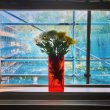 We, survivors, were born for this crisis. By OREET ASHERY
We, survivors, were born for this crisis. By OREET ASHERY
 April 2020 saw gatherings of the American right-wing that declared they demand to “re-open the economy,” as they call it. These protests were payed for by the wealthiest donors to the US Republican party. By JOSHUA SIMON
April 2020 saw gatherings of the American right-wing that declared they demand to “re-open the economy,” as they call it. These protests were payed for by the wealthiest donors to the US Republican party. By JOSHUA SIMON
 We may ask, whether in the current, transitional period of social distancing, where intermingling, contact and proximity have become anathema, the notion of entanglement is already accruing a new set of connotations, regardless whether we understand it in a concrete or metaphorical sense. By ERIC C. H. DE BRUYN
We may ask, whether in the current, transitional period of social distancing, where intermingling, contact and proximity have become anathema, the notion of entanglement is already accruing a new set of connotations, regardless whether we understand it in a concrete or metaphorical sense. By ERIC C. H. DE BRUYN
 "[...] a tsunami of derivative, cliche ads all within a week of one another. It's not a conspiracy - but perhaps a sign that it's time for something new" (Microsoft Sam)
"[...] a tsunami of derivative, cliche ads all within a week of one another. It's not a conspiracy - but perhaps a sign that it's time for something new" (Microsoft Sam)
 I lift one side of the headphones away from my left ear dispelling the patch of workplace that has been mapped onto the kitchen table for the last hour or so. By JON THOMSON and ALISON CRAIGHEAD
I lift one side of the headphones away from my left ear dispelling the patch of workplace that has been mapped onto the kitchen table for the last hour or so. By JON THOMSON and ALISON CRAIGHEAD
 Biocontainment suits, biological hoods, and isolation tents create physical separation, but allow for visual access, between the infected and the hygienic. By SHANNON MATTERN
Biocontainment suits, biological hoods, and isolation tents create physical separation, but allow for visual access, between the infected and the hygienic. By SHANNON MATTERN
 "In chaos causality is lost, strategy and leadership no longer work as well, and we are left powerless." By TOM HOLERT
"In chaos causality is lost, strategy and leadership no longer work as well, and we are left powerless." By TOM HOLERT
 A small selection of texts written by the outstanding film critic and translator Frieda Grafe, complemented by a speech from Harun Farocki.
A small selection of texts written by the outstanding film critic and translator Frieda Grafe, complemented by a speech from Harun Farocki.
Is the sender genuinely asking me if I am well or safe or healthy? By DANAH ABDULLA
April 22nd, 2020 — Rosa Mercedes / 02 By a pupil at The Meadows Primary School, Lincoln, with RUTH EWAN
By a pupil at The Meadows Primary School, Lincoln, with RUTH EWAN
![]() The choices of headlines and visual artwork reflect the editorial and national context of each magazine.
The choices of headlines and visual artwork reflect the editorial and national context of each magazine.
 He was let down by both governments… By JORDAN McKENZIE
He was let down by both governments… By JORDAN McKENZIE
 "She is wearing a lab coat and a face mask and is saying, in the softest tone possible, that she is about to take a nasal swab to test for the virus. It’s scary and soothing at the same time." By TOM HOLERT
"She is wearing a lab coat and a face mask and is saying, in the softest tone possible, that she is about to take a nasal swab to test for the virus. It’s scary and soothing at the same time." By TOM HOLERT
 (...) how and where am i supposed to read the nuances by which I understand the world (...) By TERESA CISNEROS
(...) how and where am i supposed to read the nuances by which I understand the world (...) By TERESA CISNEROS
 The background and experience from which the new instructional visuals on the coronavirus crisis are being produced, inform the reduction guided by notions of didactic efficiency. By TOM HOLERT
The background and experience from which the new instructional visuals on the coronavirus crisis are being produced, inform the reduction guided by notions of didactic efficiency. By TOM HOLERT
 Media corporations will likely leverage the CoVid-19 crisis to insist that ubiquitous high-bandwidth media constitute an essential service. By LAURA U. MARKS
Media corporations will likely leverage the CoVid-19 crisis to insist that ubiquitous high-bandwidth media constitute an essential service. By LAURA U. MARKS
 In the corona triage the temporality of field surgery and the asymmetrical chronopolitics of age cohort, class affiliation and racial predicament meet in a new constellation. By TOM HOLERT
In the corona triage the temporality of field surgery and the asymmetrical chronopolitics of age cohort, class affiliation and racial predicament meet in a new constellation. By TOM HOLERT
 Interaction designer Christian Lässer is able to render evident (and visible) how the topic of the epidemic has gradually taken possession of Die Zeit – up to the full blown monopolization of its editorial content.
Interaction designer Christian Lässer is able to render evident (and visible) how the topic of the epidemic has gradually taken possession of Die Zeit – up to the full blown monopolization of its editorial content.
 It seems to me as if theoretical persuasions are now being confirmed not only in practice, but literally embodied. By JAN DISTELMEYER
It seems to me as if theoretical persuasions are now being confirmed not only in practice, but literally embodied. By JAN DISTELMEYER
 Shouldn’t this crisis demand an urgent politics of the domestic, specifically of those who have the privilege to #stayathome? By DOREEN MENDE
Shouldn’t this crisis demand an urgent politics of the domestic, specifically of those who have the privilege to #stayathome? By DOREEN MENDE
 There is "a good chance that the large-scale experimentation with telepresence, which has long met with much resistance, will encourage its lasting adoption" (André Gunthert). By TOM HOLERT
There is "a good chance that the large-scale experimentation with telepresence, which has long met with much resistance, will encourage its lasting adoption" (André Gunthert). By TOM HOLERT
 The Coronacrisis cover artwork of the French daily newspaper Libération, starting with the issue of January 23, continuing without interruption from March 9 to ...
The Coronacrisis cover artwork of the French daily newspaper Libération, starting with the issue of January 23, continuing without interruption from March 9 to ...
 The V-shape recession, a sudden deep trough, followed by a quick surge, for few, and the Germans with their economic strength and infamouis intransigence when it comes to economic solidarity most certainly among them, is becoming analogous to the V-ictory-sign (in the wake of the V-irus ...) By TOM HOLERT
The V-shape recession, a sudden deep trough, followed by a quick surge, for few, and the Germans with their economic strength and infamouis intransigence when it comes to economic solidarity most certainly among them, is becoming analogous to the V-ictory-sign (in the wake of the V-irus ...) By TOM HOLERT
 It seems as if Suely Rolnik has already in 2005 anticipated the effects of the virus that is currently chokeholding the world: For the already discriminated minorities, including the predominantly black service providers and domestic workers recruited from the favelas, are now considered particularly at risk. By SABETH BUCHMANN
It seems as if Suely Rolnik has already in 2005 anticipated the effects of the virus that is currently chokeholding the world: For the already discriminated minorities, including the predominantly black service providers and domestic workers recruited from the favelas, are now considered particularly at risk. By SABETH BUCHMANN
see German Post
March 31st, 2020 — Archive / Showcase The retreat into "solitary facelessness," however, may have different faces, depending on local histories and urgencies. By TOM HOLERT
The retreat into "solitary facelessness," however, may have different faces, depending on local histories and urgencies. By TOM HOLERT
 If anything could stand-in as a primary culprit in the rapid spread of the COVID-19 virus that is circling the globe with seemingly unprecedented speed, it might be the jet plane. By VANESSA SCHWARTZ
If anything could stand-in as a primary culprit in the rapid spread of the COVID-19 virus that is circling the globe with seemingly unprecedented speed, it might be the jet plane. By VANESSA SCHWARTZ
 Today: Le Petit Journal (February 1911), covering the devastating 1910/1911"pest" in Manchuria
Today: Le Petit Journal (February 1911), covering the devastating 1910/1911"pest" in Manchuria
 Albeit everyone seems to believe otherwise, every crisis has a history. Hence this crisis has a history as well. BY MARK TERKESSIDIS
Albeit everyone seems to believe otherwise, every crisis has a history. Hence this crisis has a history as well. BY MARK TERKESSIDIS
 Today: a reportage on the cholera in Hamburg in 1892 from the Illustrated London News.
Today: a reportage on the cholera in Hamburg in 1892 from the Illustrated London News.
 In our compromised and entangled ways, we try to keep going, trying to transmutate heteronomy into shades of autonomy. By SVEN LÜTTICKEN
In our compromised and entangled ways, we try to keep going, trying to transmutate heteronomy into shades of autonomy. By SVEN LÜTTICKEN
 First delivery: an illustrated reportage on the cholera in Naples in 1884 from the Illustrated London News.
First delivery: an illustrated reportage on the cholera in Naples in 1884 from the Illustrated London News.
 Beneath the current debates and statements about the "costs" of lockdowns and social distancing, beneath Trumpian disengagement from medical cure (in his attempt to decouple the health catastrophe of the pandemic from the "problem" of ecomomic repression and de-growth), there lurks the most vicious vision/version of "therapeutic nihilism." By TOM HOLERT
Beneath the current debates and statements about the "costs" of lockdowns and social distancing, beneath Trumpian disengagement from medical cure (in his attempt to decouple the health catastrophe of the pandemic from the "problem" of ecomomic repression and de-growth), there lurks the most vicious vision/version of "therapeutic nihilism." By TOM HOLERT
 This weekend's news about 65 Cuban doctors, nurses and technicians arriving in Milan to support the Italian health system's struggle against the coronavirus are a forceful reminder of Fidel Castro's medical internationalism. By TOM HOLERT
This weekend's news about 65 Cuban doctors, nurses and technicians arriving in Milan to support the Italian health system's struggle against the coronavirus are a forceful reminder of Fidel Castro's medical internationalism. By TOM HOLERT
 Perhaps live streaming should be reduced to the bare minimum: to tutorials around health and medical issues, to tele-meetings of the infected and vulnerable with their loved ones, to non-commercial online courses in the newly decentralized educational systems. By TOM HOLERT
Perhaps live streaming should be reduced to the bare minimum: to tutorials around health and medical issues, to tele-meetings of the infected and vulnerable with their loved ones, to non-commercial online courses in the newly decentralized educational systems. By TOM HOLERT
 What if the irreversible situation in which the "world community" is now being united, forced to reimagine itself, has entailed a sudden leap in visibility regarding the global accumulation of crises - not primarily as a result of tireless research, political organizing, artistic productions etc., but rather as a correction of the collective sensorium on a gigantic scale? By TOM HOLERT
What if the irreversible situation in which the "world community" is now being united, forced to reimagine itself, has entailed a sudden leap in visibility regarding the global accumulation of crises - not primarily as a result of tireless research, political organizing, artistic productions etc., but rather as a correction of the collective sensorium on a gigantic scale? By TOM HOLERT
 Among the most unsettling attributes that have quickly gained notoriety (and poignancy) due to the the current crisis' new linguistic conventions and discursive framings can be counted "from a distance" or "remote". by TOM HOLERT
Among the most unsettling attributes that have quickly gained notoriety (and poignancy) due to the the current crisis' new linguistic conventions and discursive framings can be counted "from a distance" or "remote". by TOM HOLERT
 In the current situation (and any comparable state of emergency caused by an epidemic) much of the existing hope hinges on the statistical and epidemiological sciences that model an event like this by means of computational processing. By TOM HOLERT
In the current situation (and any comparable state of emergency caused by an epidemic) much of the existing hope hinges on the statistical and epidemiological sciences that model an event like this by means of computational processing. By TOM HOLERT
 A photograph of nurse Elena Pagliarini, fallen asleep, that was taken last week at the end of one of her shift at 6 a.m. in the emergency room of the hospital of Cremona, a particularly badly affected town in Lombardy. By TOM HOLERT
A photograph of nurse Elena Pagliarini, fallen asleep, that was taken last week at the end of one of her shift at 6 a.m. in the emergency room of the hospital of Cremona, a particularly badly affected town in Lombardy. By TOM HOLERT
 By now, as to be expected from a news situation as engrossing as this one, the compulsion to reach an (or even the image) of the pandemic (if not the world history of pandemics), is tantamount...By TOM HOLERT
By now, as to be expected from a news situation as engrossing as this one, the compulsion to reach an (or even the image) of the pandemic (if not the world history of pandemics), is tantamount...By TOM HOLERT
 Marxist biologist Rob Wallace, founder of Structural One Health [...] renders – vividly and frighentingly – the broader context of the coronavirus crisis...
Marxist biologist Rob Wallace, founder of Structural One Health [...] renders – vividly and frighentingly – the broader context of the coronavirus crisis...
 Pëtr Kropotkin's anarchist-anti-capitalist-commonist-animalist notion of "mutual aid" has been gaining traction for a while already...
Pëtr Kropotkin's anarchist-anti-capitalist-commonist-animalist notion of "mutual aid" has been gaining traction for a while already...
An insightful contribution by Andreas Philippopoulos-Mihalopoulos on the socio-ethical dimensions of the crisis...
March 15th, 2020 — Rosa Mercedes / 02![]() Among the countless troubling aspects of the Covid-19 crisis is the liberating effect it has on AI-based surveillance technologies and policies... By TOM HOLERT
Among the countless troubling aspects of the Covid-19 crisis is the liberating effect it has on AI-based surveillance technologies and policies... By TOM HOLERT
 Angela Mitropoulos' article "Against Quarantine" is an important intervention in the debate around the COVID-19 crisis...
Angela Mitropoulos' article "Against Quarantine" is an important intervention in the debate around the COVID-19 crisis...
 As the Coronavirus crisis is evolving, it becomes harder to tell what kind of image the most publicised image of/on the crisis is exactly... By TOM HOLERT
As the Coronavirus crisis is evolving, it becomes harder to tell what kind of image the most publicised image of/on the crisis is exactly... By TOM HOLERT
See German post
February 29th, 2020 — Archive / Showcase The screening is part of the #Forum 50 series of the Berlinale.
The screening is part of the #Forum 50 series of the Berlinale.
A list of previous digitisations from the holdings of the HaFI
February 3rd, 2020 — Archive / Showcase Screening of the three-part WDR program on the “Other Cinema” (1969) - with Harun Farocki among others.
Screening of the three-part WDR program on the “Other Cinema” (1969) - with Harun Farocki among others.
see German post.
January 6th, 2020 — Archive / Showcasesee German post.
December 16th, 2019 — Archive / Showcase The first presentation of the unfinished film HARD SELLING by Harun Farocki, which was recently found in the HaFI archive.
The first presentation of the unfinished film HARD SELLING by Harun Farocki, which was recently found in the HaFI archive.
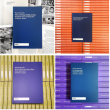 You can support the printing of Farocki’s writings with a donation now.
You can support the printing of Farocki’s writings with a donation now.
see German post.
November 12th, 2019 — Archive / ShowcaseSee German post.
September 27th, 2019 — Archive / Showcase The Public Screening is now being continued with a curated program by Stefan Pethke.
The Public Screening is now being continued with a curated program by Stefan Pethke.
see German post.
August 31st, 2019 — Archive / Showcase The booklet is dedicated to the WDR editor Werner Dütsch (1939-2018), who produced numerous films from Harun Farocki.
The booklet is dedicated to the WDR editor Werner Dütsch (1939-2018), who produced numerous films from Harun Farocki.
 New publication: Volume 4 of Farocki's Writings.
New publication: Volume 4 of Farocki's Writings.
see German post
July 30th, 2019 — Archive / Showcasesee German post.
June 30th, 2019 — Archive / Showcase Premiere of the film and material unearthed in the archive of the Harun Farocki Institute will be shown beforehand.
Premiere of the film and material unearthed in the archive of the Harun Farocki Institute will be shown beforehand.
 The current issue 101 on “Navigation Beyond Vision” is now online.
The current issue 101 on “Navigation Beyond Vision” is now online.
The video documentation is now online.
May 27th, 2019 — Projects / Eventsee German post.
May 26th, 2019 — Archive / ShowcaseWhat can archives do for today’s society? How are historical realities translated into contemporary narratives? Can transformation be archived?
May 7th, 2019 — Projects / EventAgainst Cinema, against Culture
April 30th, 2019 — Archive / Showcase Wild's first longer film is set between the fronts of the 1980s revolution in the Philippines (...).
Wild's first longer film is set between the fronts of the 1980s revolution in the Philippines (...).
 In 1977 Ingemo Engström and Gerhard Theuring embark on a journey through France. They trace the escape route of the German emigration in France 1940/41 (...).
In 1977 Ingemo Engström and Gerhard Theuring embark on a journey through France. They trace the escape route of the German emigration in France 1940/41 (...).
HaFI is one of the participating institutions in Archive Außer Sich since 2017. A complete overview of our activities is now available on a dedicated website.
April 24th, 2019 — Projects / Event The meeting focuses on artistic/creative and political/ethical positions within global radical film cultures and video activism movements.
The meeting focuses on artistic/creative and political/ethical positions within global radical film cultures and video activism movements.
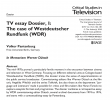 Texts and documents concerning the production context at "Westdeutscher Rundfunk", Cologne
Texts and documents concerning the production context at "Westdeutscher Rundfunk", Cologne
see German post.
March 22nd, 2019 — Archive / Showcase Navigation begins where the map ends (...).
Navigation begins where the map ends (...).
 The film diverges from traditional ethnographic work and is instead a multi-layered media translation (...).
The film diverges from traditional ethnographic work and is instead a multi-layered media translation (...).
 An experimental essay documentary film on the concept of “Nationality”.
An experimental essay documentary film on the concept of “Nationality”.
Text excerpts.
February 25th, 2019 — Residency / 2018 Contributions from individuals and communities both inside and outside academia, from artists, activists, filmmakers, researchers, scientists and others are welcome.
Contributions from individuals and communities both inside and outside academia, from artists, activists, filmmakers, researchers, scientists and others are welcome.
See German post.
January 12th, 2019 — Archive / Showcasesee German post.
January 7th, 2019 — Archive / Showcase The film portrays the four wives of a marabout in Niger, enclosed in the eponymous courtyard of a building complex. They manage to develop micro-economic strategies to form relationships with the exterior world.
The film portrays the four wives of a marabout in Niger, enclosed in the eponymous courtyard of a building complex. They manage to develop micro-economic strategies to form relationships with the exterior world.
 In December 2018 we celebrated the three-year existence of HaFI together with the friends, the Farocki family, and our project partners...
In December 2018 we celebrated the three-year existence of HaFI together with the friends, the Farocki family, and our project partners...
See German post.
November 17th, 2018 — Archive / ShowcaseThe presentation "Harun Farocki As A Method" revisits films and artworks from Egypt and the context of the Arab world.
October 25th, 2018 — Residency / 2018 A screening with Ali Hussein Al Adawy, the third Harun Farocki residency scholarship holder.
A screening with Ali Hussein Al Adawy, the third Harun Farocki residency scholarship holder.
A cooperation event with HaFI.
October 23rd, 2018 — Projects / EventAs history continues, more and more marks are left on the surface of the earth.
October 18th, 2018 — Archive / Showcasesee German post.
September 30th, 2018 — Archive / Showcase Godard stopped traveling to foreign countries, his camera must not even drive around much by car.
Godard stopped traveling to foreign countries, his camera must not even drive around much by car.
From the beginning of September we will be welcoming Ali Hussein Al Adawy as the third fellowship holder of the Harun Farocki Residency in Berlin.
August 31st, 2018 — Residency / 2018see German post.
August 30th, 2018 — Archive / Showcase The film combines enacted scenes and historical material and is about the past and present of Levantkade in Amsterdam’s old harbor (...)
The film combines enacted scenes and historical material and is about the past and present of Levantkade in Amsterdam’s old harbor (...)
see German post.
July 23rd, 2018 — Archive / ShowcaseA discovery from Farocki’s estate will be shown on this occasion.
July 2nd, 2018 — Projects / Event A film about the legal process against the ‚Plowshares Eight‘, eight members of the Christian peace movement in US, who hammered a nuclear warhead to pieces at a weapon’s factory.
A film about the legal process against the ‚Plowshares Eight‘, eight members of the Christian peace movement in US, who hammered a nuclear warhead to pieces at a weapon’s factory.
Jürgen Ebert will present and talk about the last unpublished issue of the magazine, Filmkritik No. 335-336, Nov-Dec 1984, now released on the occasion of "Edit Film Culture!".
June 30th, 2018 — Projects / Event With a delay of over 33 years the last unpublished issue of the magazine, Filmkritik No. 335-336, Nov-Dec 1984, will now appear. This edition is dedicated to the filmmaker Emile de Antonio.
With a delay of over 33 years the last unpublished issue of the magazine, Filmkritik No. 335-336, Nov-Dec 1984, will now appear. This edition is dedicated to the filmmaker Emile de Antonio.
see German post.
June 30th, 2018 — Archive / ShowcaseSee German post.
May 31st, 2018 — Archive / Showcase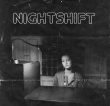 Nightshift explored the work of women in relation to politics, film, desire, and society.
Nightshift explored the work of women in relation to politics, film, desire, and society.
see German post.
April 30th, 2018 — Archive / Showcase A reprint of the yearly indexes from 1975 to 1983, supplemented by the the index for 1984 which was still missing.
A reprint of the yearly indexes from 1975 to 1983, supplemented by the the index for 1984 which was still missing.
see German post.
March 30th, 2018 — Archive / Showcase![]() The titles of Norman's films all hint at the struggle to assert an Afro-American identity in a world shaped by whites.
The titles of Norman's films all hint at the struggle to assert an Afro-American identity in a world shaped by whites.
see German post.
February 10th, 2018 — Archive / Showcasesee German post.
January 22nd, 2018 — Archive / ShowcaseThe first edition of Rosa Mercedes online journal. An audio journey with Marianna Maruyama through the Farocki Now Academy in Berlin
January 9th, 2018 — Rosa Mercedes / 01See German post.
December 30th, 2017 — Archive / Showcase Logik des Gefühls: What happens? Nothing much. […] Where is it set? In an in-between space, between lost love and a coming love. Winter. Berlin. 1981.
Logik des Gefühls: What happens? Nothing much. […] Where is it set? In an in-between space, between lost love and a coming love. Winter. Berlin. 1981.
News from the archive: INSTRUCTIONS ON HOW TO PULL OFF POLICE HELMETS and UNTITLED OR: NIXON COMES TO BERLIN, both made in 1969.
November 30th, 2017 — Archive / ShowcaseHaFi presents the film PROFESSION: DOCUMENTARIST, followed by a discussion between Shirin Barghnavard and Constanze Ruhm
November 7th, 2017 — Residency / 2017see German post.
October 31st, 2017 — Archive / ShowcaseIn the framework of the "Farocki Now" Academy, the UdK (University of the Arts) Berlin organises a LARP. Roles are still available upon registration.
October 17th, 2017 — Projects / EventFor the second Harun Farocki Residency we have invited the Tehran-based Iranian filmmaker and editor Shirin Barghnavard to Berlin for three months.
October 11th, 2017 — Residency / 2017see German post
September 30th, 2017 — Archive / Showcase A forum for workshops, presentations, and debates which explore the contemporary relevance of Harun Farocki’s work and thought, placing it in new contexts and activating its productive potential
A forum for workshops, presentations, and debates which explore the contemporary relevance of Harun Farocki’s work and thought, placing it in new contexts and activating its productive potential
 Tonight: Opening of the retrospective of Harun Farocki's work for cinema and television at Kino Arsenal.
Tonight: Opening of the retrospective of Harun Farocki's work for cinema and television at Kino Arsenal.
 From “A for Adorno” to “Z for Zidane” – an ABCs of the Essay Film accompanied by a short text Farocki wrote in 1987.
From “A for Adorno” to “Z for Zidane” – an ABCs of the Essay Film accompanied by a short text Farocki wrote in 1987.
 A selection of materials pertaining to the film "Before Yor Eyes - Vietnam" introduced by a commentary penned by the Harun Farocki Institut.
A selection of materials pertaining to the film "Before Yor Eyes - Vietnam" introduced by a commentary penned by the Harun Farocki Institut.
See German post.
August 31st, 2017 — Archive / ShowcaseSee German post.
July 1st, 2017 — Archive / Showcase Political commitment, thirst for research and stamina. A film by Ogawa Productions.
Political commitment, thirst for research and stamina. A film by Ogawa Productions.
 Factories and families as places of exploitation, which don’t just have to be interpreted but also changed.
Factories and families as places of exploitation, which don’t just have to be interpreted but also changed.
 Documentary filmmaker Gerhard Benedikt Friedl describes Helmut Färber's method of teaching film history.
Documentary filmmaker Gerhard Benedikt Friedl describes Helmut Färber's method of teaching film history.
Helmut Färber’s 80th anniversary was celebrated by some (German language) texts in the media
April 26th, 2017 — Projects / Research A mythological road movie, a squatter and hacker story.
A mythological road movie, a squatter and hacker story.
Kevin B. Lee about Farocki's working paper "What Ought to Be Done".
February 23rd, 2017 — Residency / 2016The talk will include the screening of "Ronny und Harun spielen Theater" which is a short documentary of a staged scene from “Etwas wird sichtbar” (“Before Your Eyes Vietnam”), 1982.
February 16th, 2017 — Projects / EventSee German post.
February 6th, 2017 — Residency / 2016Formulating a poetic framework to explore the contemporary landscape of media and terror.
January 31st, 2017 — Residency / 2016A brilliant (and moving) lesson of how to navigate a post-cinema small screen reality.
January 16th, 2017 — Residency / 2016 Harun Farocki saw the film in 1971 at the Hamburger Filmschau. In the succeeding years, he worked closely with Engström.
Harun Farocki saw the film in 1971 at the Hamburger Filmschau. In the succeeding years, he worked closely with Engström.
Kevin B. Lee will give a „light-typing lecture“ introducing his works and practice.
January 6th, 2017 — Residency / 2016The blog of the HaFI residency publishes the immediate and informal experiences made by the HaFI residency fellows.
January 6th, 2017 — Residency / 2016See German post.
January 6th, 2017 — Residency / 2016See German post.
November 30th, 2016 — Projects / ResearchKevin B. Lee will be the first guest of the Harun Farocki residency from the middle of December onwards
November 30th, 2016 — Residency / 2016Architecture, Instructional Technology, and the Social Production of Pedagogical Space Around 1970
November 30th, 2016 — Projects / Research Letters exchanged between Harun Farocki, Peter Weiss and Westdeutscher Runfunk (WDR): A glimpse at the production history of "On Display: Peter Weiss".
Letters exchanged between Harun Farocki, Peter Weiss and Westdeutscher Runfunk (WDR): A glimpse at the production history of "On Display: Peter Weiss".
For the Harun Farocki Institut, Peter Weiss’ 100th birthday on November 8, 2016 meant an opportunity to take a closer look at Farocki’s WDR program “On display: Peter Weiss”.
November 8th, 2016 — Projects / ResearchA guided tour followed by a screening and a talk with Carles Guerra and Bert Rebhandl.
November 1st, 2016 — Projects / EventSee German post.
October 25th, 2016 — Projects / ResearchWe were isolated individuals and simultaneously subsumed into a totality*
October 12th, 2016 — Projects / EventSee German post.
September 15th, 2016 — Projects / Research‘What is navigation?’ inquires the curatorial seminar 2016/17 of the CCC Research-Based Master Programms / Visual Arts Department of HEAD – Geneva.
September 5th, 2016 — Projects / ResearchExpropriating Television.
September 1st, 2016 — Projects / ResearchThe Harun Farocki Institut organizes Farocki Now - A Temporary Academy as a component of the “Harun Farocki Retrospective”.
August 30th, 2016 — Projects / Event A working paper by Farocki (1975/76), a commentary by Tom Holert, Doreen Mende and Volker Pantenburg followed by a letter by Peter Nestler.
A working paper by Farocki (1975/76), a commentary by Tom Holert, Doreen Mende and Volker Pantenburg followed by a letter by Peter Nestler.
 The Institut's first public appearance at Berlinale 2016. A graffiti by Harun Farocki.
The Institut's first public appearance at Berlinale 2016. A graffiti by Harun Farocki.
 Material to investigate the present, the future past. Impressions from the archive of the Farocki Institut.
Material to investigate the present, the future past. Impressions from the archive of the Farocki Institut.








